Religion and World Views
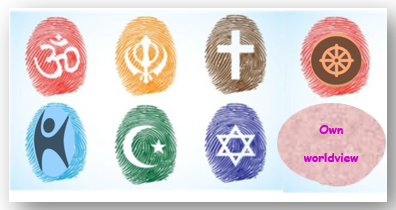
At Bourne Multi Academy Trust (BMAT), we have adopted the term Religion and Worldviews or RWV (commonly referred to as Religious Education) to reflect recommendations made by the Commission on RE in their 2018 report: Religions and Worldviews: the way forward, which recognises that “every person has their own worldview, their way of looking at and explaining life and the world, whether this is religious or non-religious, organised or personal.”
The following video explains the concept further: No one stands nowhere
We have adopted the KAPOW scheme of work and supplemented this with units of work taken from National Association of Teachers for RE.
The curriculum, focuses on religion and worldviews as personal and diverse; it aims to reflect the changing nature of religion and worldviews in modern Britain and help children to understand that they are a lived experience for people and communities.
Each unit includes overarching ‘big questions’ which will be revisited throughout your child’s time at school, allowing them to apply the breadth and depth of their learning across various concepts. These ‘big questions’ are:
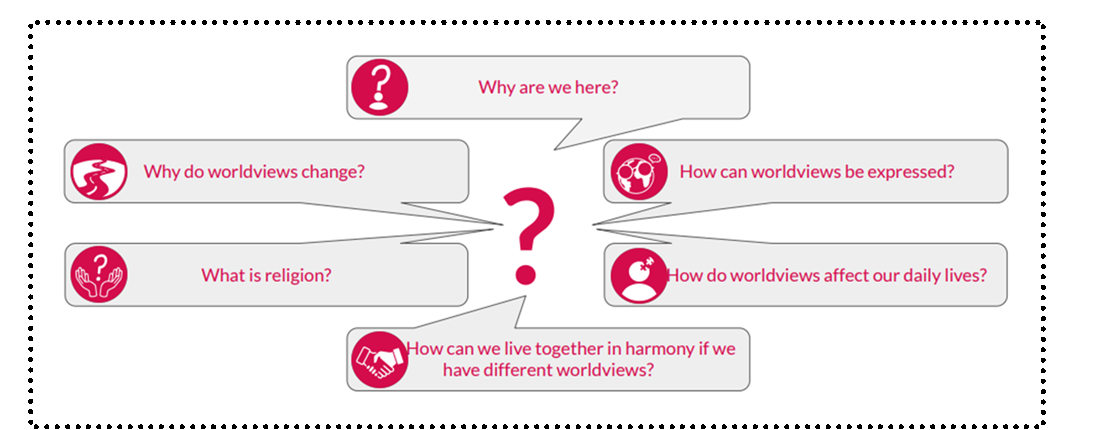
Reproduced with kind permission of Kapow Primary Limited
The scheme of work enables pupils to meet the government guidance, which states that RE must reflect that ‘the religious traditions in Great Britain are, in the main, Christian while taking account of the teaching and practices of the other principal religions represented in Great Britain’. section 375(3) of the Education Act 1996
We recognise that many religions and worldviews are represented across Kent and the schools within our academy trust. Therefore, children will investigate the following worldviews. Furthermore, we will endeavour to celebrate and investigate those religions and worldviews held locally by inviting local speakers and visiting local places of worship.

Reproduced with kind permission of Kapow Primary Limited
In the Early Years, learning experiences are designed to target Development matters ‘Understanding the world’ statements and over the year children will have the opportunity talk about the beliefs of their immediate family and community, recognising that people have different beliefs and celebrate special times in different ways. We will be introducing different religions and worldviews through various child characters and they will encounter their religions and worldviews, by focusing on different themes including: special stories, special places, special times, special objects and special people.
Impact
Children are encouraged to work to their full potential and develop the following skills:
The curriculum aims to develop deep thinkers who are open-minded about religion and worldviews. Through the scheme, children will:
- secure an understanding of concepts in order to be able to make connections,
- gain knowledge, which enables them to ask and respond to challenging questions, and think critically about the world around them
- be able to confidently recall key RWV knowledge and be able to apply their knowledge and skills across the curriculum.
- learn to respect and appreciate worldviews that are different to their own
- Children will explore a wide range of topics in a safe environment and will be encouraged to discuss and debate their ideas with peers taking into account their personal preconceptions, responses and views.
- become increasingly reflective about their own worldview and how it is influenced.
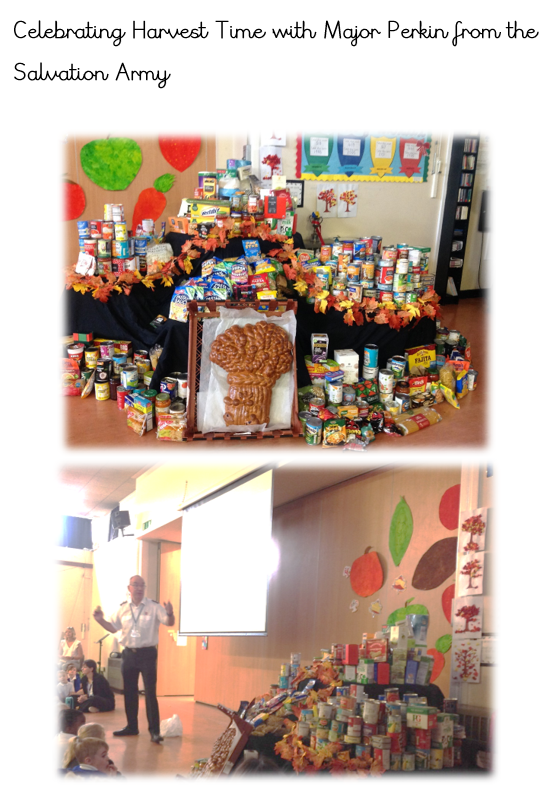 |
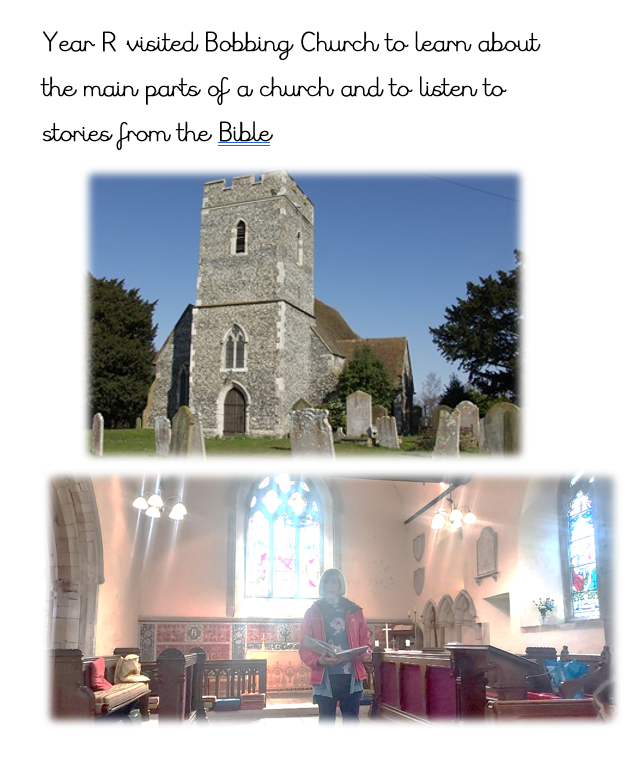 |
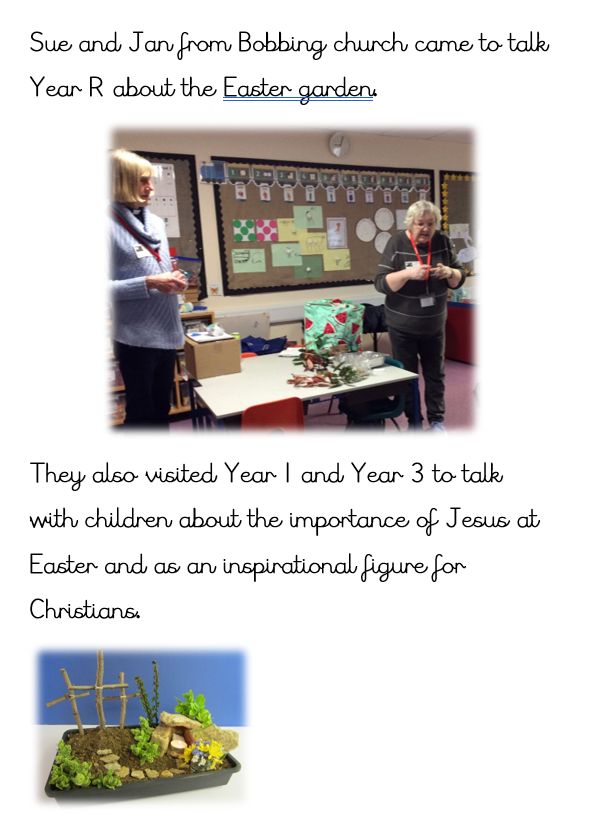 |
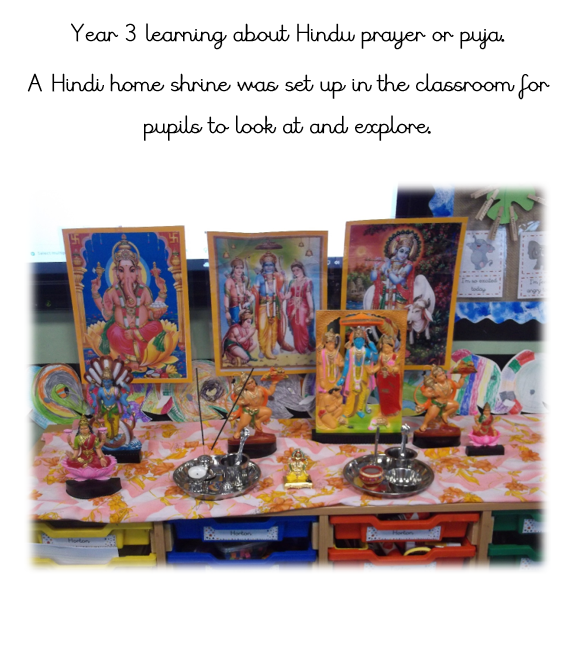 |
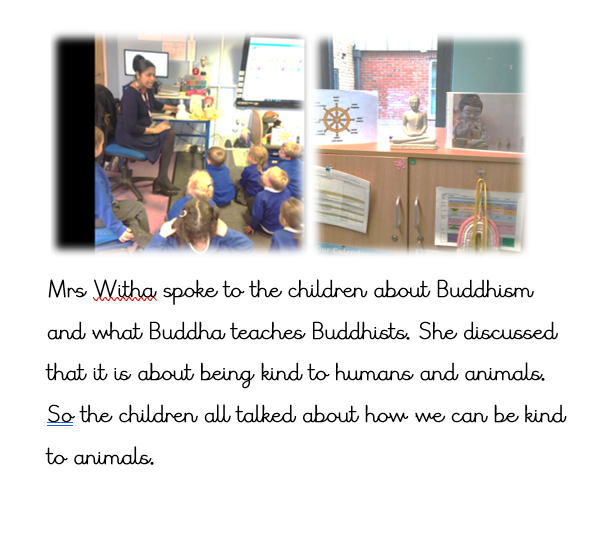 |
If you have any questions or queries relating to the content of these lessons, please speak to your child's class teacher, or contact the school office.

